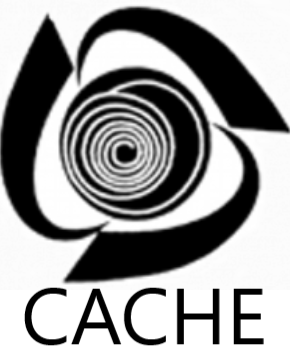How to Study/How to Learn
Many students do not use the most effective ways to study. These screencasts and handouts are based on studies published in the cognitive psychology literature. The books, references, and websites provide sources for more detailed information.
Screencasts
- How to Study: Part 1 – practice testing
- How to Study: Part 2 – distributed practice and interleaved practice
- How to Study: Part 3 – additional approaches to studying to improve retention, and what approaches to avoid
- 5 Scientific Steps to Ace Your Next Exam by Scott Young
- How to Study using Screencasts
- Spaced Repetition – learning technique where you review material at increasingly spaced intervals to improve long-term retention.
- Interleaved Learning
- Fixed Mindset vs. Growth Mindset
- 13 Study Tips – based on research by neuroscientists and learning experts.
Handouts
Books and Articles
- Learn Like a Pro: Science-Based Tools to Become Better at Anything, by B. Oakley, O. Schewe, St Martin’s Essentials (2021).
- Rohrer, D., Dedrick, R. F., Hartwig, M. K., Cheung, C.-N., A Randomized Controlled Trial of Interleaved Mathematics Practice. Journal of Educational Psychology 112, 40-52 (2020). https://dx.doi.org/10.1037/edu0000367
- L. Himmer, M. Schönauer, D. P. J. Heib, M. Schabus, S. Gais, Rehearsal initiates systems memory consolidation, sleep makes it last, Science Advances 5 (24 April 2019). https://dx.DOI:10.1126/sciadv.aav1695
- Understanding How We Learn: A Visual Guide, Y. Weinstein, M. Sumeracki, O. Caviglioli, Routledge (2018)
- Learn Better: Mastering the Skills for Success in Life, Business, and School, or, How to Become an Expert in Just About Anything by U. Boser, Rodale Books (2017).
- P. Chen, O. Chavez, D.C. Ong, B. Gunderson, Strategic Resource Use for Learning: A Self-Administered Intervention That Guides Self-Reflection on Effective Resource Use Enhances Academic Performance, Psychological Science 28, 774-785 (2017). https://doi.org/10.1177/0956797617696456
- College Smart: How to Succeed in College Using the Science of Learning by N.C. Soderstrom with S. McMillian, Lasting Learning Press (2016).
- Unlimited Memory: How to use Advanced Learning Strategies to Learn Faster, Remember More and be More Productive by Kevin Horsley, TCK Publishing (2016)
- Deep Work: Rules for Focused Success in a Distracted World by C. Newport, Grand Central Publishing (2016)
- The ABCs of How We Learn: 26 Scientifically Proven Approaches, How They Work, and When to Use Them by D.L. Schwartz, J.M. Tsang, K.P. Blair, W.W. Norton, New York (2016)
- How We Learn: The Surprising Truth About When and Where and Why it Happens by B. Carey, Random House (2015)
- Teach Students How to Learn: Strategies You Can Incorporate Into Any Course to Improve Student Metacognition, Study Skills, and Motivation by S.Y. McGuire, S. McGuire (2015), Stylus Publishing, Virginia
- 10 Steps to Earning Awesome Grades (While Studying Less) by T. Frank (2015)
- Fluent Forever: How to Learn Any Language Fast and Never Forget It by G. Wyner, Harmony Books (2014)
- A Mind for Numbers: How to Excel at Math and Science (Even If You Flunked Algebra) by B. Oakley, Penguin Press (2014)
- Make it Stick: The Science of Successful Learning by P.C. Brown, H.L. Roediger III, M.A. McDaniel, Belknap Press (2014)
- Brain Rules: 12 Principles for Surviving and Thriving at Work, Home, and School by J. Medina, Pear Press (2014),
- A. Dunlosky, K.A. Rawson, K.J. Marsh, M.J. Nathan, D.T. Willingham, Improving Students’ Learning With Effective Learning Techniques: Promising Directions From Cognitive and Educational Psychology, Psychological Science in the Public Interest 14, 4-58 (2013). https://doi.org/10.1177/1529100612453266
- H.L. Roediger III, M.A. Pyc, Inexpensive techniques to improve education: Applying cognitive psychology to enhance educational practice, J. Applied Research in Memory and Cognition 1, 242–248 (2012). https://doi.org/10.1016/j.jarmac.2012.09.002
- Bjork, E. L., Bjork, R. A., Making things hard on yourself, but in a good way: Creating desirable difficulties to enhance learning. In M. A. Gernsbacher, R. W. Pew, L. M. Hough, & J. R. Pomerantz (Eds.), Psychology and the real world: Essays illustrating fundamental contributions to society (pp. 56-64) (2011). New York: Worth Publishers.
- How Learning Works by S.A. Ambrose, M.W. Bridges, M. DiPietro, M.C. Lovett, M.K. Norman, Jossey-Bass, San Francisco, 2010
- D.T. Willingham, What Will Improve a Student’s Memory?, American Educator, Winter 2008-2009, pp 17-25.
- How to Become a Straight-A Student: The Unconventional Strategies Real College Students Use to Score High While Studying Less by C. Newport, Broadway Books (2007)
- Getting Things Done: The Art of Stress-Free Productivity by D. Allen, Penguin Press (2003)
- Shana K. Carpenter, Steven C. Pan, & Andrew C. Butler, The Science of Effective Learning with Spacing and Retrieval Practice, Nature Reviews Psychology, volume 1, pages 496-511 (2022)
- Stolen Focus: Why You Can’t Pay Attention — And How to Think Deeply Again by Johann Hari, Crown Publishing (2022)
Websites
- Coursera: Learning How to Learn: Powerful mental tools to help you master tough subjects
- Saundra McGuire: Strategies to Teach Students How to Learn ACUE
- Applying Cognitive Psychology to Enhance Educational Practice, Bjork Learning and Forgetting Lab
- Learning to Learn Series at University of Arizona
- Learning Corner at Oregon State University
- College Info Geek by Thomas Frank
- Anki – free program that uses flash cards and spaced repetition
- Quizlet – free site with flash cards and more
- Five Scientific Steps to Ace Your Next Exam, by Scott Young
- Mastering the Art of Reading: Techniques to Boost Comprehension
Making Technical Presentations
- Assertion-Evidence Approach: The assertion-evidence (AE) approach is a way to create better understood presentations as evidenced by tests of audience comprehension. This approach makes presentations more focused and helps the speaker project more confidence.
- Powerpoint Presentation Checklist



